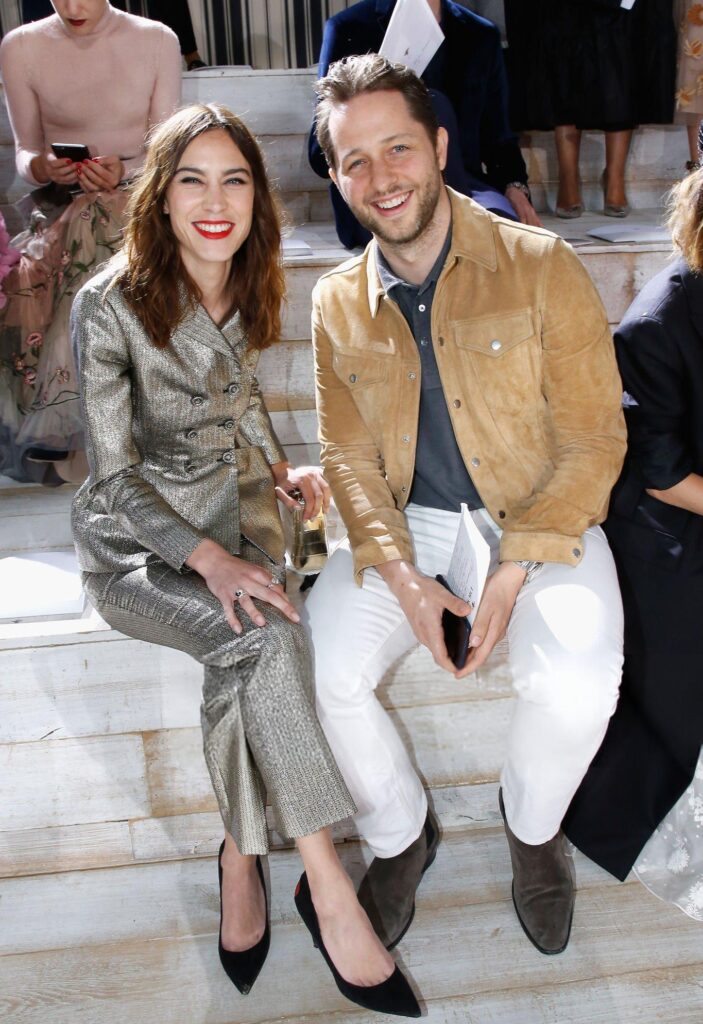Table of Contents
Introduction to Fashion Show Host Characteristics
Fashion shows are a celebration of creativity, elegance, and innovation. The fashion show host plays a crucial role in orchestrating this celebration, ensuring a seamless event where the audience stays engaged and the designers’ collections shine. But what exactly does it take to be an exceptional fashion show host? ( Key Fashion Show Host Characteristics )
What is a Fashion Show Host?
A fashion show host is the individual responsible for guiding the event, introducing designers, providing context to the collections, and interacting with the audience. They ensure the show’s energy remains high and the audience is engaged throughout the event.
Importance of the Role
The host’s presence can either make or break the flow of the show. They are not just emcees, but ambassadors for the designers, the models, and the fashion industry itself. Without an engaging and skilled host, even the most beautiful collection could fail to leave a lasting impact.
History of Fashion Show Hosting
The role of the fashion show host has evolved over time. What began as a simple role in the early 20th century has transformed into a critical part of modern fashion shows. Hosts now must possess a blend of personality, knowledge, and professionalism to meet the high expectations of today’s fashion audiences.
Essential of Fashion Show Host Characteristics
Confidence and Poise
A fashion show host must exude confidence from the moment they step on stage. Confidence not only helps in captivating the audience but also reassures designers and models that their collections are in capable hands.
Excellent Communication Skills
Clear and articulate speech is paramount. Fashion hosts must introduce designers, provide insight into the collections, and keep the audience informed about the progression of the event. Exceptional communication is the glue that holds the show together.
Quick Thinking and Adaptability
Live fashion shows are prone to unexpected events. A host must be able to adapt quickly to changes, such as a delay in the models, unexpected technical issues, or last-minute adjustments in the lineup. ( Key Fashion Show Host Characteristics )
The Role of Charisma in Hosting Fashion Shows

Defining Charisma in a Fashion Context
Charisma is an intangible yet vital quality for fashion show hosts. It’s the combination of charm, confidence, and energy that keeps the audience engaged and excited throughout the show.
Examples of Charismatic Hosts
Charismatic hosts like Alexa Chung and Derek Blasberg have gained popularity due to their ability to connect with audiences while effortlessly navigating the intricacies of live fashion events.
How to Develop Charisma
Charisma can be cultivated. Practicing public speaking, understanding audience psychology, and staying relaxed under pressure are key ways to enhance one’s charisma.
Fashion Knowledge and Awareness
Staying Updated with Fashion Trends
A great host stays current with the latest fashion trends and industry happenings. They must know the difference between haute couture and ready-to-wear collections, and have the insight to discuss the significance of various designs.
Understanding the Fashion Industry
Understanding the inner workings of the fashion industry, from the perspectives of designers, models, and brands, is essential. A host acts as a bridge between the world of fashion and the audience.
Building a Fashion Persona
Developing a unique persona that resonates with fashion show audiences is important. Hosts should be able to reflect the aesthetics and energy of the show they are hosting, whether it’s high fashion or avant-garde street style.
Public Speaking Skills
Mastering Audience Engagement
Being able to capture and hold the attention of a crowd requires expert-level public speaking skills. A host must project their voice confidently while creating a welcoming and inclusive atmosphere.
Clear and Articulate Speech
Hosts must speak clearly, ensuring their words are easily understood by both the live audience and those watching via broadcasts or streams. Proper diction and enunciation are critical.
Using Humor and Wit Appropriately
Adding a bit of humor can ease the formality of a fashion show, but it should be done sparingly and with consideration for the tone of the event. Witty remarks can break the ice, but professionalism must always be maintained.
The Importance of Confidence
Why Confidence is Key in Fashion Shows
Confidence is one of the most critical qualities for any fashion show host. A host who exudes self-assurance sets a positive tone for the entire event, fostering an atmosphere of professionalism and elegance. This is especially vital in the fast-paced world of fashion, where events must flow seamlessly. The audience, models, and designers all take cues from the host’s level of confidence.
Ways to Boost Self-Confidence
Self-confidence can be developed through practice and preparation. Before the show, it’s important for the host to familiarize themselves with the event’s flow, the designers’ collections, and the guest list. A well-prepared host is a confident host. Additionally, practicing voice modulation and maintaining eye contact with the audience can significantly improve a host’s stage presence.
Dealing with Stage Fright
Even seasoned hosts may experience stage fright. Techniques such as deep breathing, visualizing success, and engaging with smaller segments of the audience can help hosts overcome nervousness. Another tip is to focus on the purpose of the event—showcasing fashion—rather than the fear of making mistakes.
Building Relationships in the Fashion Industry
Networking with Designers, Models, and Guests
A successful fashion show host not only has a strong presence on stage but also excels at networking behind the scenes. Building relationships with designers, models, and high-profile guests is essential for staying relevant in the fashion industry. Knowing key players personally allows the host to personalize introductions and interactions, making the event more engaging for the audience.
Maintaining Professional Relationships
Long-term success as a fashion show host depends on maintaining strong professional relationships. Being approachable, respectful, and reliable will help hosts build trust and rapport within the industry. This also opens up opportunities for hosting future events and collaborations with influential figures in fashion.
Attention to Detail
Why Details Matter in Fashion Shows
In the world of fashion, the smallest details can make or break an event. Whether it’s ensuring the correct pronunciation of designers’ names or perfectly timing transitions between segments, a fashion show host must pay attention to every detail. Their job is to keep the show running smoothly without overshadowing the designs being showcased.
Ensuring Smooth Transitions Between Segments
Fashion shows often involve multiple segments, such as different designers, themed collections, or special performances. The host’s role is to ensure that these segments flow smoothly into one another without any awkward pauses or technical glitches. This requires clear communication with the backstage crew and staying aware of the event’s timing.

Multitasking and Quick Decision Making
Handling Unforeseen Challenges
No fashion show is without its challenges. Whether it’s a model tripping on the runway, a wardrobe malfunction, or a technical issue with the lights or sound, a host must be able to think quickly and react with poise. Being able to solve problems on the fly while maintaining the audience’s attention is a hallmark of a skilled fashion show host.
Multitasking During Live Events
Hosting a live event requires juggling multiple tasks simultaneously. In addition to narrating the event and engaging with the audience, hosts must keep an eye on the backstage action, handle communication with the event’s technical team, and adapt to any changes in real time. Multitasking is a skill that is honed with experience, but the ability to stay calm under pressure is essential.
Voice Modulation and Tone
Why Voice Modulation is Critical
The ability to modulate one’s voice is a vital skill for fashion show hosts. Depending on the audience and the tone of the event, the host must adjust their voice to convey the right level of enthusiasm, authority, or calm. For instance, a high-energy runway show might require a lively and upbeat voice, while a more sophisticated couture event may call for a softer, more refined tone.
Adjusting Tone for Different Audiences
Understanding the audience is key to a successful event. A fashion show host should tailor their tone based on the type of event, the target demographic, and the overall theme of the show. Whether it’s engaging an audience of industry insiders or a crowd of fashion enthusiasts, the host’s tone should resonate with those attending the show.
Adaptability and Flexibility
Adapting to Different Types of Fashion Shows
Fashion shows come in many forms—high fashion, streetwear, bridal, or avant-garde. Each type of show has its own unique vibe, and the host must be able to adapt their style to suit the occasion. A bridal fashion show, for example, may require a more romantic tone, while a cutting-edge streetwear show might call for a bold, energetic presence.
Being Flexible with Changes in the Program
Last-minute changes are common in live events, and fashion shows are no exception. Designers may switch the order of their collections, models might arrive late, or technical issues could cause delays. A skilled host must remain flexible and adjust the event’s pace without letting the audience feel the disruption.
Managing Audience Engagement
Engaging the Audience Effectively
Audience engagement is crucial to the success of any fashion show. A host must be able to read the room and interact with the audience in a way that enhances their overall experience. This might involve providing insightful commentary on the collections, initiating audience participation, or making the audience feel included in the event.
Handling Difficult Audience Situations
Occasionally, a host may face a challenging audience member or an unexpected disruption. Whether it’s handling an uncooperative guest or managing noise levels, the host must stay composed and professional, redirecting the audience’s attention back to the runway in a seamless manner.
Cultural Sensitivity and Inclusivity
Respecting Cultural Differences in Fashion
Fashion is a global industry, and shows often feature designers, models, and guests from diverse cultural backgrounds. A fashion show host must be aware of cultural sensitivities and avoid any language or behavior that could be perceived as disrespectful. Inclusivity is key to creating a welcoming atmosphere for all participants and attendees.
Promoting Inclusivity on the Stage
Fashion shows are increasingly showcasing a broader range of body types, skin tones, and identities. As the face of the event, the host plays an important role in promoting this inclusivity. A host’s language should reflect the diversity of the models and designers, and they should celebrate the individuality of each person on the runway.
Technical Skills Required for Hosting
Familiarity with Event Management Tools
Modern fashion shows often involve a range of technical elements, from audiovisual equipment to digital stage cues. A fashion show host must be familiar with these tools and be able to work with production teams to ensure everything runs smoothly. Technical know-how allows the host to stay informed and avoid disruptions.
Working with Production Teams
Collaboration with the backstage and production teams is critical. A successful host builds strong relationships with the technical crew to coordinate the show’s timing, lighting, and sound. Open communication ensures the event flows without any hiccups, and that the host is prepared for any sudden changes.
Conclusion: The Impact of a Skilled Fashion Show Host
Summarizing Key Fashion Show Host Characteristics
A great fashion show host is a combination of many skills: charisma, confidence, adaptability, fashion knowledge, and strong communication abilities. These Key Fashion Show Host characteristics not only make for a smooth event but also leave a lasting impression on the audience and fashion community.
The Long-Term Benefits of Professional Hosting
A skilled fashion show host can elevate the prestige of the event, create memorable experiences for the audience, and build lasting professional relationships in the fashion industry. In the long run, they become trusted figures who can help shape the future of fashion presentations.
At Glamour Script, learn how to elevate your fashion show with the must-have traits of a professional host.
FAQS
What are the key to the Successful fashion show host characteristics?
A successful fashion show host must be confident, articulate, adaptable, knowledgeable about fashion, and able to engage the audience while handling challenges smoothly.
How can a fashion show host engage the audience effectively?
Engaging the audience involves using charisma, clear communication, and a personalized approach. Hosts should also pay attention to the energy of the room and adapt their style accordingly.
Why is fashion knowledge important for a fashion show host?
Fashion knowledge allows the host to provide context to the collections, explain trends, and engage more meaningfully with designers and the audience.
How does a host handle unexpected challenges during a live fashion show?
A good host stays calm, adapts quickly, and communicates effectively with the production team to address issues without disrupting the show.
What is the role of inclusivity in fashion show hosting?
Inclusivity ensures that all participants, regardless of background or identity, feel welcome. The host promotes inclusivity by using respectful language and celebrating diversity on stage.
How can a host improve their public speaking skills?
Improving public speaking skills requires practice, feedback, and preparation. Focusing on clarity, articulation, and audience engagement can help a host become more effective on stage.

















































